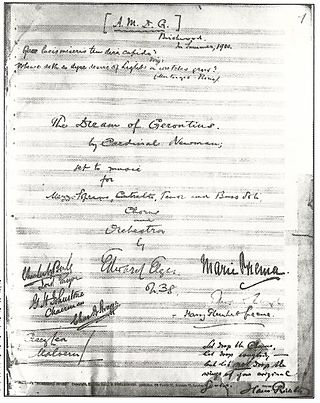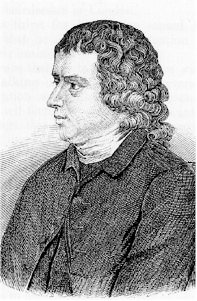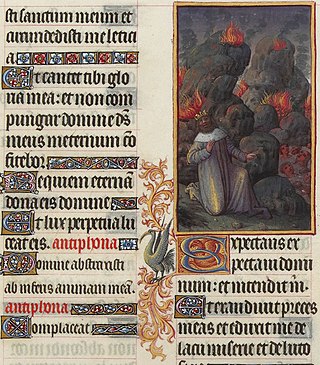
The "Londonderry Air" is an Irish air that originated in County Londonderry, first recorded in the nineteenth century. The tune is played as the victory sporting anthem of Northern Ireland at the Commonwealth Games. The song "Danny Boy" written by English lawyer Fred Weatherly uses the tune, with a set of lyrics written in the early 20th century.

The Serenade for Tenor, Horn and Strings, Op. 31, is a song cycle written in 1943 by Benjamin Britten for tenor, solo horn and a string orchestra. Composed during the Second World War at the request of the horn player Dennis Brain, it is a setting of a selection of six poems by English poets on the subject of night, including both its calm and its sinister aspects. The poets Britten chose to set for the Serenade range from an anonymous 15th-century writer to poets from the 17th, 18th and 19th centuries.

"Be Thou My Vision" is a traditional Christian hymn of Irish origin. The words are based on a Middle Irish poem that has traditionally been attributed to Dallán Forgaill.

Consecration is the transfer of a person or a thing to the sacred sphere for a special purpose or service. The word consecration literally means "association with the sacred". Persons, places, or things can be consecrated, and the term is used in various ways by different groups. The origin of the word comes from the Latin stem consecrat, which means dedicated, devoted, and sacred. A synonym for consecration is sanctification; its antonym is desecration.

The Dream of Gerontius, Op. 38, is a work for voices and orchestra in two parts composed by Edward Elgar in 1900, to text from the poem by John Henry Newman. It relates the journey of a pious man's soul from his deathbed to his judgment before God and settling into Purgatory. Elgar disapproved of the use of the term "oratorio" for the work, though his wishes are not always followed. The piece is widely regarded as Elgar's finest choral work, and some consider it his masterpiece.

"Come Thou Fount of Every Blessing" is a Christian hymn written by the pastor and hymnodist Robert Robinson, who penned the words in the year 1758 at the age of 22.

Thanksgiving after Communion is a spiritual practice among Christians who believe in the Real Presence of Jesus Christ in the Communion bread, maintaining themselves in prayer for some time to thank God and especially listening in their hearts for guidance from their Divine guest. This practice was and is highly recommended by saints, theologians, and Doctors of the Church.
"Pleading" is a poem written by Arthur L. Salmon, and set to music by the English composer Edward Elgar in 1908, as his Op.48.
Was it some Golden Star? is a poem written by Gilbert Parker, published in Volume I of a series of poems called Embers. It was set to music by the English composer Edward Elgar in 1910, as his Op. 59, No. 5.
Twilight is a song with music by the English composer Edward Elgar written in 1910 as his Op. 59, No. 6. Elgar set the words of the poem The Twilight of Love, from Volume 2 of a series of poems called Embers by Sir Gilbert Parker. The Opus 59 songs were part of a song-cycle of six romantic songs by Parker that was never completed – Nos 1, 2 and 4 were never composed. The other songs were Oh, soft was the song and Was it some Golden Star?. The songs were originally written with piano accompaniment, but this was later re-scored by the composer for full orchestra.
Oh, soft was the song is a song with words by Gilbert Parker set to music by the English composer Edward Elgar in 1910, as his Op. 59, No. 3. It is the second and last verse of a poem At Sea which Parker published in Volume I of a series of poems called Embers. The Opus 59 songs were part of a song-cycle of six romantic songs by Parker that was never completed – Nos 1, 2 and 4 were never composed. The other songs were Was it some Golden Star? and Twilight. The songs were originally written with piano accompaniment, but this was later re-scored by the composer for full orchestra.
"The Language of Flowers" is an unpublished song from a poem by the American geologist and poet James Gates Percival, with music written by the English composer Edward Elgar when he was only fourteen years old.
"A Child Asleep" is a song, with lyrics from a poem written by Elizabeth Barrett Browning. It was set to music by the English composer Edward Elgar in December 1909 and published in 1910 by Novello. It was first published by Browning in 1840.
The River is a song written by the English composer Edward Elgar in 1909 as his Op.60, No.2.

”Always and Everywhere” is a song by the English composer Edward Elgar with words translated from the Polish of Zygmunt Krasiński by Frank H. Fortey. It was composed and published in 1901.
Coronation Ode, Op. 44 is a work composed by Edward Elgar for soprano, alto, tenor and bass soloists, chorus and orchestra, with words by A. C. Benson.

"Helen of Kirkconnel" is a famous Scottish ballad.

Psalm 40 is the 40th psalm of the Book of Psalms, beginning in English in the King James Version: "I waited patiently for the LORD". The Book of Psalms is part of the third section of the Hebrew Bible, and a book of the Christian Old Testament. In the slightly different numbering system used in the Greek Septuagint and Latin Vulgate translations of the Bible, this psalm is Psalm 39. In Latin, it is known by the incipit, "Expectans expectavi Dominum". It is described by the Jerusalem Bible as a "song of praise and prayer for help".

Spiritual communion is a Christian practice of desiring union with Jesus Christ in the Eucharist. It is used as a preparation for Mass and by individuals who cannot receive Holy Communion.










